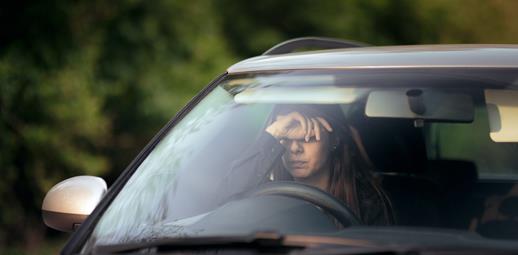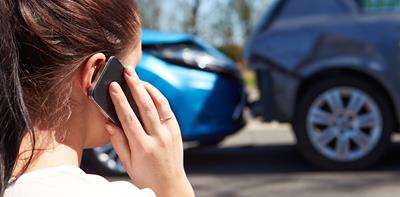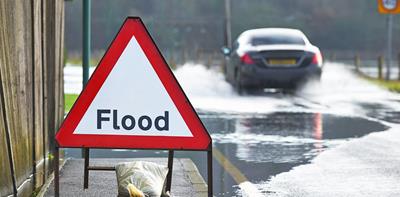
Sometimes, even the most careful drivers can come close to being in a road accident or narrowly avoid a crash.
Even if you and your passengers escape injury, those situations can still be scary and cause a lot of stress.
Similarly, if you witness a near miss road traffic accident, what you’ve seen may stay with you for some time.
EASY AS HACK
A near miss may be an accident that didn’t happen, but it can still have a big impact on the driver, their passengers and anyone else involved.
At a glance
- What to do if you’re in shock.
- You don’t need to report a near miss accident, but reporting the cause to the police could be important to prevent future accidents.
- How to reduce the risk of a near miss happening again.
Coping with a near miss car accident
Whether you’ve misread the road, or accidentally pulled out in front of someone, most drivers will have had at least one moment where they realise how close they came to being badly hurt.
As with accidents, near misses can happen unexpectedly for many different reasons, including:
- bad weather conditions
- animals on the road
- mechanical or electrical failures
- falling asleep at the wheel
- someone stepping out in front of your car.
For some people, even if they’re physically unscathed, a near miss can have a deep psychological impact, sometimes with lasting effects.
Immediately after a near miss car accident you can experience a range of feelings, from shock and fear, to guilt, nervousness, or anger, even if you’re just a witness.
Rest assured this is perfectly natural. In situations where we feel unsafe or distressed, our body initiates a ‘fight or flight’ response triggering a surge of stress hormones, including adrenaline.
Shock can cause a range of different physical responses, including:
- feeling jittery
- tightness in your chest
- a racing heartbeat
- the need to run or get away from the situation
- feeling physically sick
- brain fog or being unable to think straight
- feeling disconnected from what's happening around you, like you’re watching a movie.
It’s essential to try to remain calm. Staying calm allows you to think more objectively about your situation.
What to do immediately after a near miss car accident
Knowing how to calm down after almost crashing is important. These simple steps can help calm your nervous system and get you back on the road.
- When it’s safe to do so, pull off the road and find somewhere safe to park while you compose yourself and check your vehicle and passengers. Turn off your engine and turn on your hazard lights.
- Calm yourself by taking few deep breaths or counting to 10. The calmer you are, the better prepared you will be to handle the situation. For example, you may need to reassure your passengers or check your vehicle and call roadside assistance if there’s a problem with your car.
- Take all the time you need to compose yourself. Don’t let other drivers or passengers rush you.
- Unless you’re already at your destination, you’ll need to complete your journey. Drive very carefully after a near miss.
- Eat or drink something sweet to help with the shock.
- When you can, seek support, by telling somebody what happened and talking it through.
If you’ve been in an accident - rather than experiencing a near miss - it can help you feel more in control of the situation if you already know the steps to take after a crash, such as contacting the police or making an insurance claim.
Find our more in our guide: what to do if you're in a car accident.
Driving after a near miss car accident
Driving may be the last thing you want to do at that moment, as you may still feel very tense. So, make sure you only get back on the road when you feel fit to do so and don’t feel rushed by building traffic or impatient road users.
In fact, research has shown that accidents are more common after a traumatic or stressful event. One study showed this was particularly the case for city driving.
Coping with the longer-term effects of a near miss car accident
After a shocking experience, it can take a few hours for your body to get back to its normal state.
Even though no one was hurt and no damage done, it’s also not uncommon for there to be longer term effects on your mental health, which may take a long time.
People respond to the same situation in different ways. For one person, a near miss accident can be a minor event that they shrug off; for others it can have a longer lasting impact.
For example, in the case of a new driver, it could shake their confidence and make them more nervous on the road. For someone already suffering from anxiety, it can leave them feeling even more vulnerable, out of control, or upset.
A near miss can also bring up memories of a car accident in the past that may have been particularly traumatic.
If you’re finding it hard to cope after a near miss, take a look at this advice from the Royal College of Psychiatrists to get the support you need and get back on the road confidently and safely.
How to prevent near miss car accidents in the future
A practical way to get your confidence back after a near miss car accident is to reduce the risks of one happening again.
With this in mind, there are some sensible precautions you can take:
- get your car serviced regularly and check the lights, tyres, mirrors and brakes
- avoid driving – or drive carefully – in difficult weather conditions
- don’t drive too close to the vehicle in front
- avoid driving if you’re very tired, distracted or upset
- stick to the speed limit
- don’t drink under the influence of drink or drugs, including prescription drugs or after an anaesthetic
- stay focused on the road rather than talking on your phone, eating or tuning the radio
Find out how to drive safely if there are animals on the road.
Should I report a near miss car accident?
If you’re involved in a near miss, you may feel anxious about the possible repercussions, even if it wasn’t your fault.
There’s no legal requirement to report a near miss.
However, there are situations when reporting the cause of the near miss is a good idea. It could help prevent an actual accident in the future. This is a great way to give your near miss a more positive outcome.
For example, call 999 if:
- you see people behaving irresponsibly by the roadside
- you notice someone driving dangerously.
- there’s an animal (alive, injured or dead) that’s a risk to traffic
- You break down in a dangerous location. Always try to wait somewhere safe, away from the vehicle, if you can.
Contact the local council or National Highways if there’s:
- an obstruction like a fallen tree, mud slide or overhanging branch
- a faulty traffic light
Can you get in trouble for almost causing an accident?
There may be consequences if the way your driving is the cause of a near miss car accident.
In the following situations, you could be fined, have points taken off your licence, be sent on a driving awareness course, or even get a driving ban, depending on the severity of the offence.
- Dangerous driving. For example, driving aggressively, racing other vehicles, ignoring road signs and traffic lights, or overtaking in dangerous locations.
- Careless driving (driving without due care and attention). For example, swerving because you’re looking at a map, driving on the wrong side of the road or undertaking on a motorway.
- Using your mobile while driving without an approved hands-free device.
- Driving a faulty vehicle. For example, with broken brake lights.
- Speeding. Usually this means exceeding the limit by 10% plus 2mph. If you’re 45% or more over the limit, you could be banned.
- Drink-driving. The best way to stay safe is to avoid alcohol and drugs all together.
How do you stop feeling guilty about a near miss car accident?
When you make a mistake, feeling guilty is a natural response. It helps us take responsibility for our actions.
For more tips and guidance on staying safe on the roads, read more on Solved.
You can find out more about our car insurance here.


